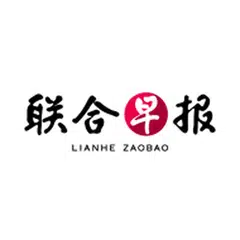Beijing bans Taiwan fruit imports: Impoverishing Taiwan to achieve reunification?
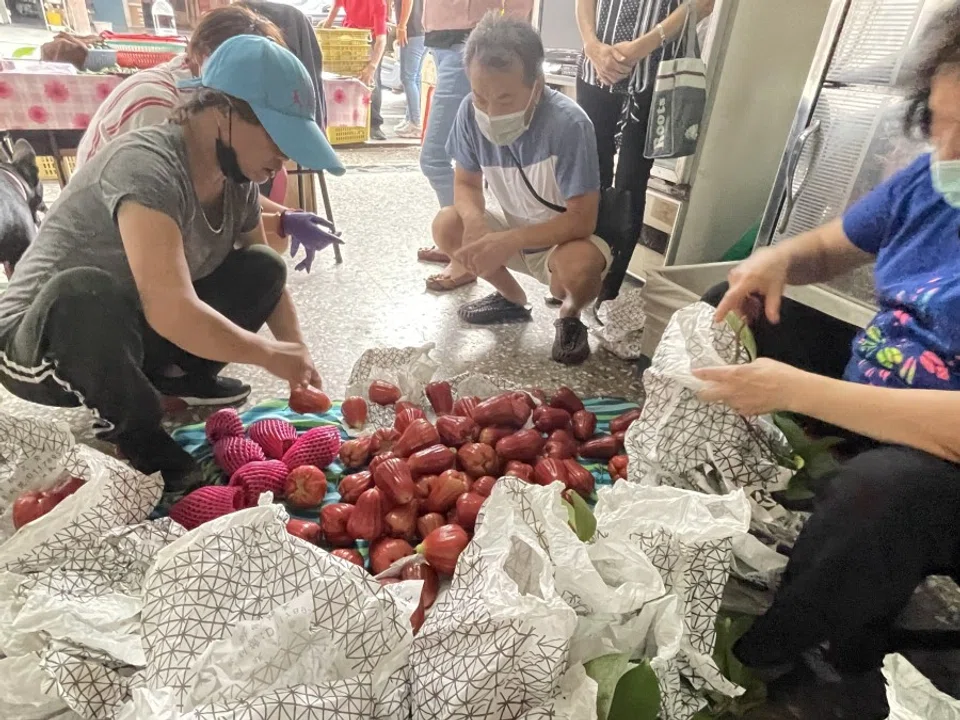
Amid continued frosty cross-strait relations, mainland China has called a halt on Taiwan's three main fruit exports - pineapples, sugar apples and wax apples.
The halt on pineapples was called in February, and took effect on 1 March. The suspension on sugar apples and wax apples was even harsher - it was announced on 19 September during the Mid-Autumn Festival period, effective the following day, leaving Taiwan's Democratic Progressive Party (DPP) government no time to respond. According to reports, Taiwan stands to lose nearly NT$4 billion (around S$194.43 million) a year with the import ban.
The two rounds of suspensions were ostensibly due to pests such as mealybug "Planococcus minor" found on the fruits, but public opinion in Taiwan has it that it all has to do with politics.
Pests or politics?
Taiwan President Tsai Ing-wen posted in Chinese on Facebook that China's abrupt halt on imports of sugar apples and wax apples from Taiwan goes against international trade regulations, adding that the sudden measures are clearly not out of normal trade considerations.
Taiwan Foreign Minister Joseph Wu tweeted: "Following a series of military threats, the #PRC is weaponizing trade by announcing an immediate ban on #Taiwan's custard & wax apples. This hostile move violates international trade norms! #China wants to join the high-standard #CPTPP? Is this a joke?"
Hong Kong's pro-Beijing Ta Kung Pao ran a commentary countering that the DPP was pushing away responsibility, and that mealybugs were found several times in Taiwan's sugar apples and wax apples yet the DPP was crying "oppression by the mainland", "damage to the cross-strait trade system", and "dispute resolution through the World Trade Organization (WTO)". The commentary summed it up as the usual "dramatics" by Tsai and the DPP.
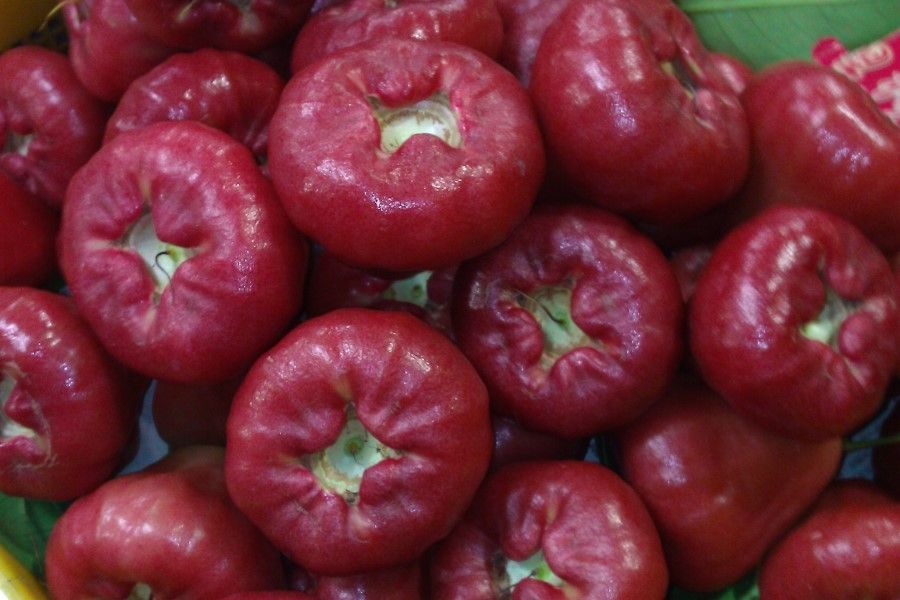
Council of Agriculture (COA) chief Chen Chi-chung said the mealybug in question is present in many Asian countries and are usually found on the surface of fruits, and the fruits can be traded after fumigation. He said there have never been any cases of halting imports by one party for such a reason, and called on mainland China to show scientific evidence. He also said that since mainland China halted pineapple imports on 25 February, Taiwan has made eight requests for technical negotiations, but has not received a single response.
Jiao Jun, cross-strait agricultural expert and author of the book The Politics of Fruits also assessed that while one could pretend that the first time had nothing to do with cross-strait factors, it would be more difficult to say the same the second time around. In fact, it would be a political issue. Jiao also felt that with no direct channel of communication, it would be difficult to resolve the issue of inspections.
One can conclude that Beijing's avoidance of discussing inspections with the DPP government and blocking Taiwan's sugar apples and wax apples on the basis of pest infestations does involve political factors to some degree. Figures also show that Taiwan is highly dependent on mainland China as an export market for sugar apples and wax apples, making it an easy card for mainland China to play in manipulating Taiwan.
According to COA figures cited by the BBC Chinese website, Taiwan produces about 57,000 tonnes of sugar apples annually, and exports about a quarter of it, of which 95% goes to mainland China; as for wax apples, Taiwan's annual production is about 50,000 tonnes, about one-tenth of this is exported, practically all of it to mainland China.
"Resisting mainland China and hurting Taiwan"? Both Blue and Green camps affected
Within Taiwan, the fruit controversy has become an issue for the Kuomintang (KMT) to criticise the DPP. Eric Chu, a candidate for the next KMT chair, has said that there is definitely no problem with Taiwan's fruits, and the reality is cross-strait political factors.
He accused the Tsai administration of "acting clueless" and being unwilling to communicate to address and resolve the issue, hurting Taiwan's farmers. He wanted the DPP to clarify if it was supposed to be "resisting mainland China and protecting Taiwan" (抗中保台) or "resisting mainland China and hurting Taiwan" (抗中害台).
It can be seen that as mainland China expands its blocks on Taiwan-produced fruits, many counties and cities in Taiwan - Blue or Green -might be affected.
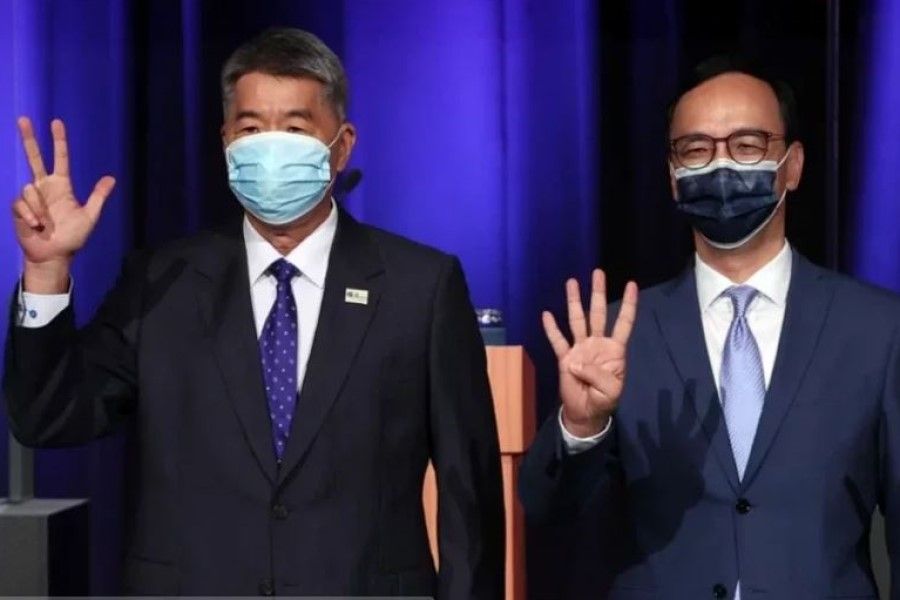
Political scientist Chang Ya-chung - also a candidate for KMT chair - said the Tsai administration is incapable. Tsai does not accept the 1992 Consensus, while the Straits Exchange Foundation and the Association for Relations Across the Taiwan Straits have no opportunity for exchange, and so they are unable to handle any problems that arise.
The main pineapple-producing areas in Taiwan are Pingtung, Tainan, and Kaohsiung, traditional DPP strongholds. When the halt on pineapples was announced in February, public opinion was on the side of it being targeted at the pro-democracy green camp.
The main wax apple producing areas include "green" Pingtung and Kaohsiung, but sugar apples are mainly produced in pro-establishment "Blue" territory Taitung. Chen forecasts that the next "target" might be oranges. If so, Taiwan's largest orange-producing area Taichung - currently also "Blue" ground - will be the first to be hit.
It can be seen that as mainland China expands its blocks on Taiwan-produced fruits, many counties and cities in Taiwan - Blue or Green -might be affected.
The CAO says that it has prepared a NT$1 billion budget and will take all possible measures to protect the interests of its farmers, and has warned that it might formally raise a dispute resolution claim with the WTO.
According to reports, some Taiwan academics feel that the CAO has a good chance of winning a dispute resolution, but it will be a time-consuming process. Some people also pointed out that Taiwan has also blocked many agricultural imports from mainland China, and so appealing to the WTO may not work.
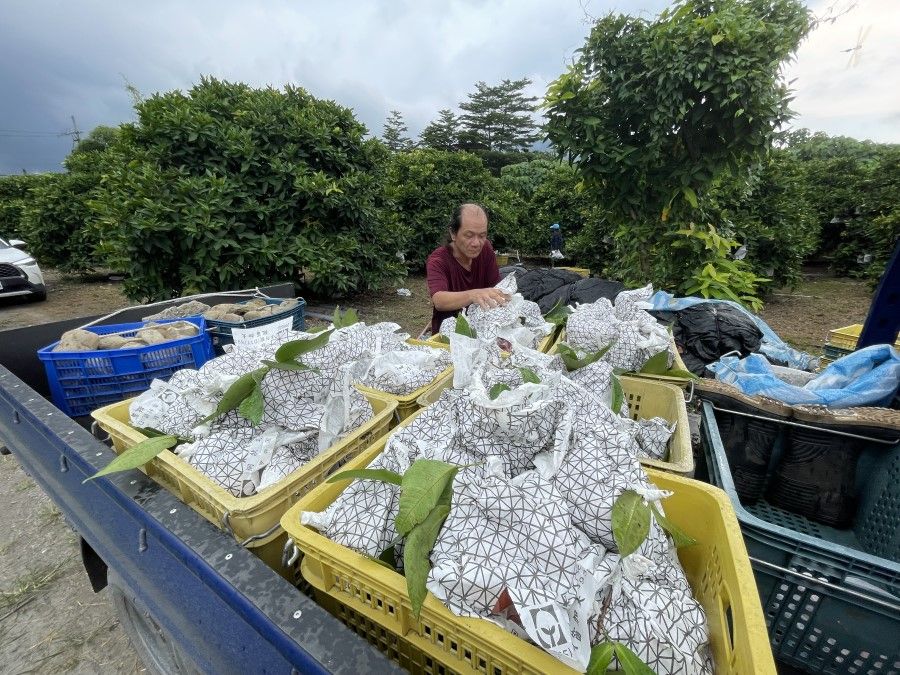
Is Beijing trying to make Taiwan poor?
Why did the mainland choose to deal such a great blow to Taiwan's fruit industry at this point in time?
Based on recent developments, it may be related to media reports claiming that the US is "seriously considering" renaming the "Taipei Economic and Cultural Representative Office" as the "Taiwan Representative Office". Officials from both sides were even reported to have engaged in sensitive talks known as the "Special Channel" at Annapolis, Maryland, some 80 km away from Washington. Beijing thinks that the use of "Taiwan" violates the one-China principle, and hence retaliated.
Apart from the fruit import ban, on the last day (17 September) of Taiwan's annual Han Kuang military exercises, ten military planes from China's People's Liberation Army (PLA) entered Taiwan's air defence identification zone (ADIZ). Taiwanese media also reported that during the five-day exercise, the PLA never stopped sending warplanes to Taiwan's ADIZ on a daily basis.
"Why must we eat Taiwan's fruits?" [The article] claimed that numerous signs pointed to there being issues with Taiwan's supply of fruits to China and the former saving its better-quality produce for Japan.
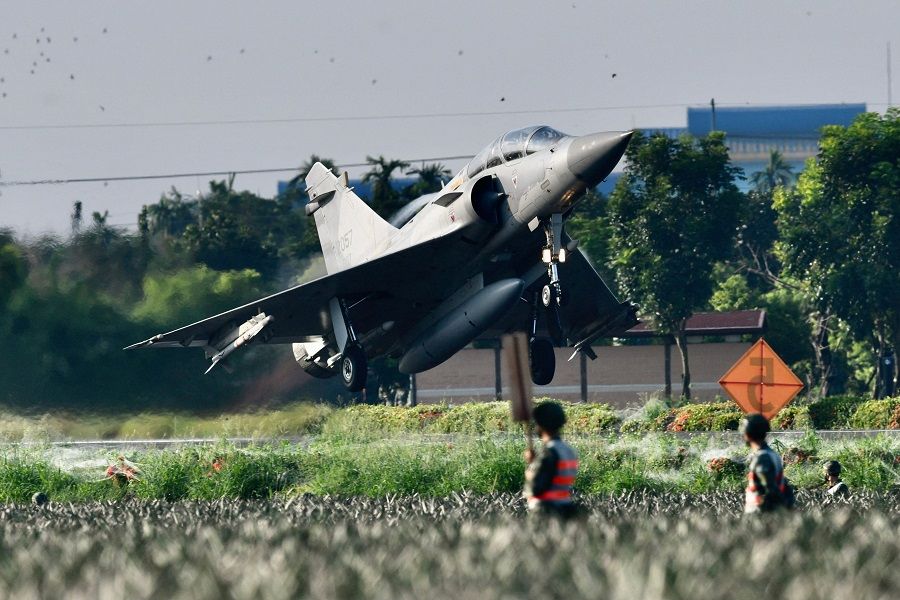
Earlier in March when the mainland banned Taiwan's pineapples, analysts had already predicted that this was the start of Beijing's attempt at making Taiwan poor. Doing so would have little impact and side effects on the mainland, yet could be a barometer of public opinion and means of observing political trends on both sides of the Taiwan Strait. Other analysts said that Beijing's intention was to highlight the inadequacies of the DPP as well as to warn Tsai that maintaining Taiwan's economic stability meant deciding whether cross-strait relations would remain confrontational.
On 20 September, mainland China WeChat official account Zhanhao (占豪) published an article titled "Another Shot Fired at Taiwan! (对台湾又出手了!)". The article also lumped Beijing's attempt at making Taiwan poor together with the ban on Taiwan's fruits.
The article first criticised the large number of pro-Taiwan independence supporters in Taiwan, remarking, "Why must we eat Taiwan's fruits?" It claimed that numerous signs pointed to there being issues with Taiwan's supply of fruits to China and the former saving its better-quality produce for Japan. Thus, the mainland Chinese "can certainly choose not to eat it".
The article further said that netizens were right in thinking that making Taiwan poor might be a way to achieve reunification with Taiwan, and it was "possible" that Beijing would use this measure to do exactly that. It explained that it was easy to see the rationale behind it - given Tsai's continued moves towards seeking independence for Taiwan, the mainland would certainly adopt a series of measures, and this would include the concurrent use of military and economic measures.
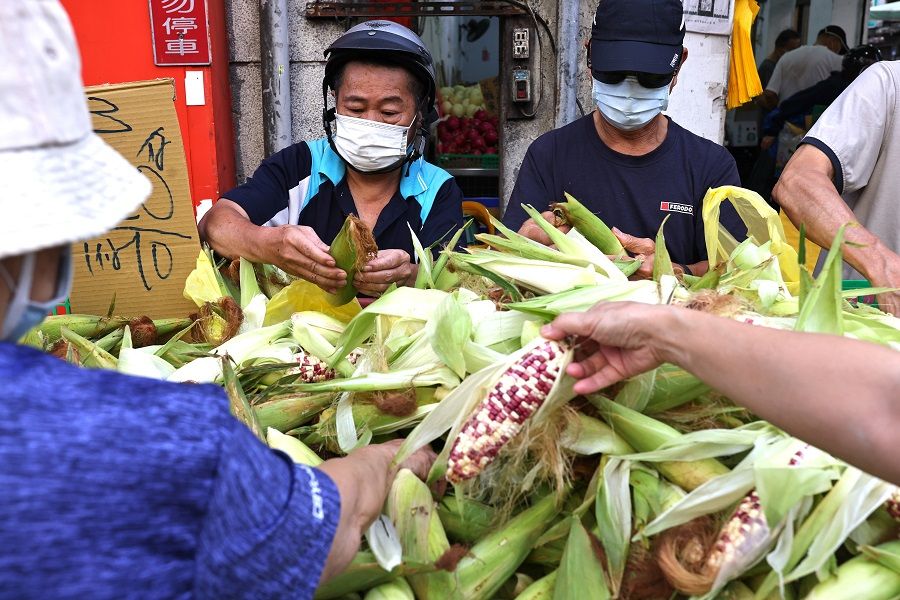
Hong Kong online media HK01 also analysed that the crux of the issue is cross-strait relations - as Beijing is aware that it is the primary market for many of Taiwan's exports, it is making use of this fact to put a chokehold on Taiwan's export industry so that the Tsai administration will change its course as soon as possible.
How are Taiwan's pineapples doing now?
Whether this policy of making Taiwan poor is effective remains to be seen. But let's first take a look at how Taiwan's pineapples are doing following the mainland's ban.
Pan-Green media the Liberty Times reported on 20 September that following Beijing's ban on the import of Taiwan's pineapples in March, the COA implemented a three-pronged plan of tackling the export, processing and domestic sales of pineapples. This has stabilised the production and sales of the fruit and helped to reduce the reliance on a single market. As a result, export sales grew by 566% year-on-year.
According to statistics from the COA, excluding exports to the mainland before March this year, 25,187 tonnes of pineapple have been exported as of August, which is a 566% increase from the same period last year. Among them, exports to Japan grew by 742%, while exports to Hong Kong rose by 514%. The strong support from Japan and Hong Kong significantly contributed to saving Taiwan's pineapple export market.
To safeguard its fruit industry, it is expected that Taiwan will seek to diversify its export market.
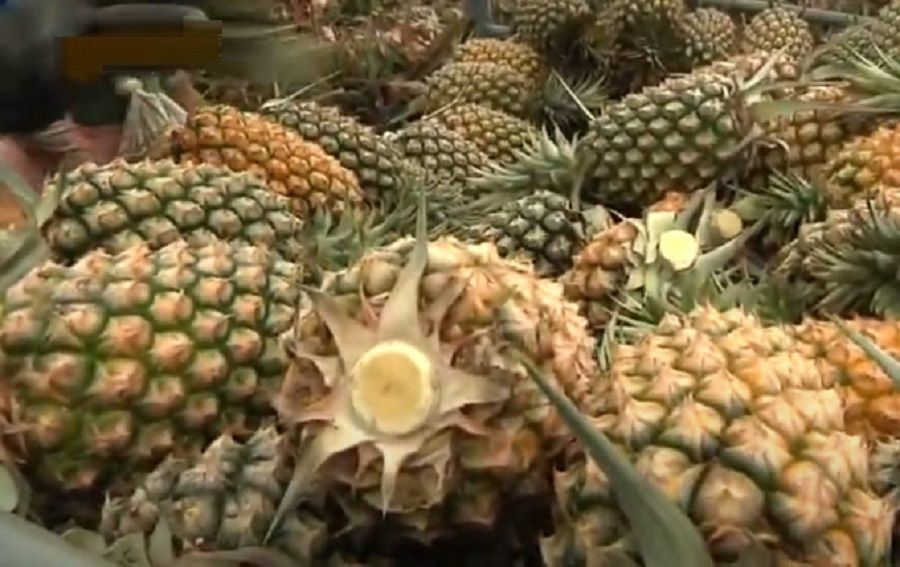
However, according to a Chinese BBC report, the loss incurred from losing the mainland Chinese market has not been fully made up for. In the first seven months of 2020, the mainland imported 40,142 tonnes of pineapples from Taiwan. But during the same period this year, Japan and Hong Kong imported a combined total of 23,818 tonnes of pineapples from Taiwan.
Based on these figures, while the mainland's policy of making Taiwan poor is somewhat effective, whether this policy can ultimately achieve the goal of reunification remains to be seen. Following the pineapple ban, Taiwan has come to realise that it cannot solely rely on the mainland as the primary market of its fruit export. To safeguard its fruit industry, it is expected that Taiwan will seek to diversify its export market.
China-US relations and cross-strait relations are getting increasingly complex. Amid China-US tension, strained cross-strait relations, and the fact that the US and Taiwan are moving closer to each other, it is inevitable that Taiwan would become a bargaining chip for the US to contain China, while Beijing would send stern warnings to Taiwan from time to time.
Following pineapples, sugar apples and wax apples, perhaps another kind of fruit would be targeted when the time comes. In this unending fruit war between both sides of the Taiwan Strait, it is the poor Taiwanese fruit farmers who would bear the brunt of it all.
Related: Serious consequences if Washington allows renaming of Taiwan's US office | More mainland Chinese elites supporting armed unification with Taiwan: A cause for concern? | Did PLA fire new missiles over Biden's statement on Taiwan? | 30,000 US troops in Taiwan? | What does a celebrity's divorce rumours tell us about cross-strait relations?
